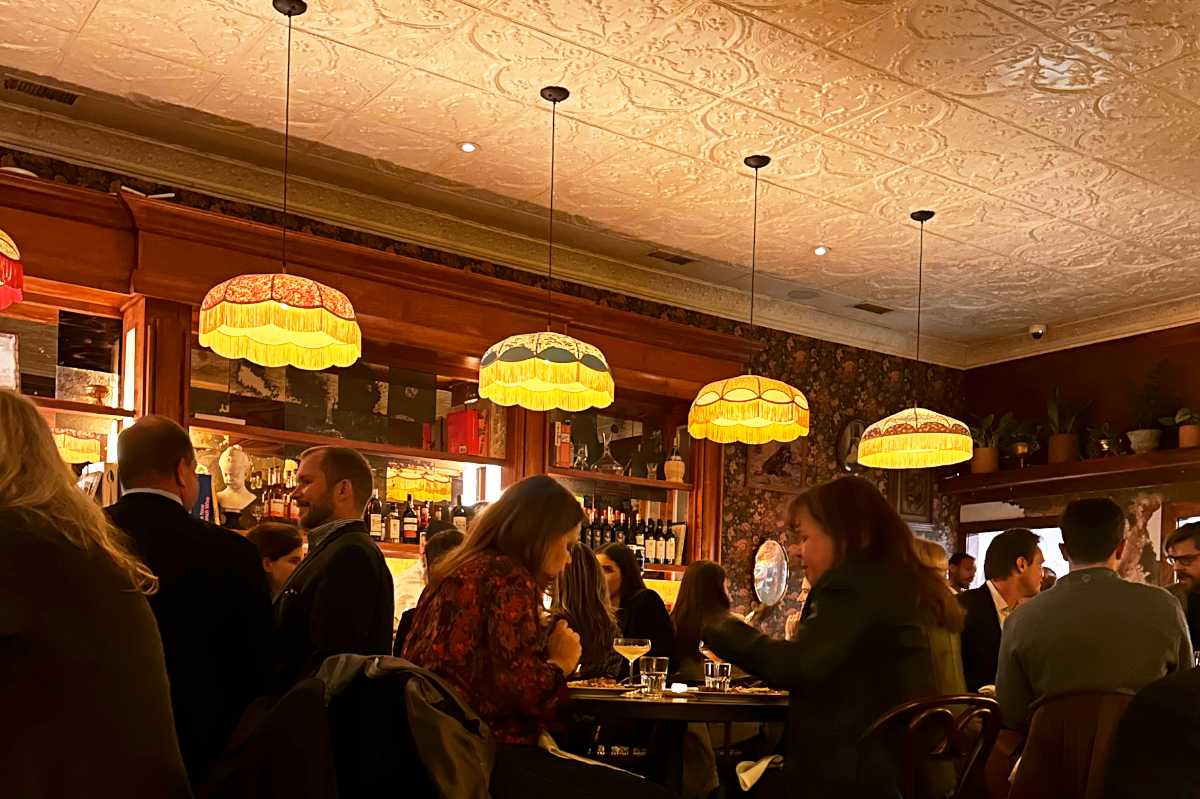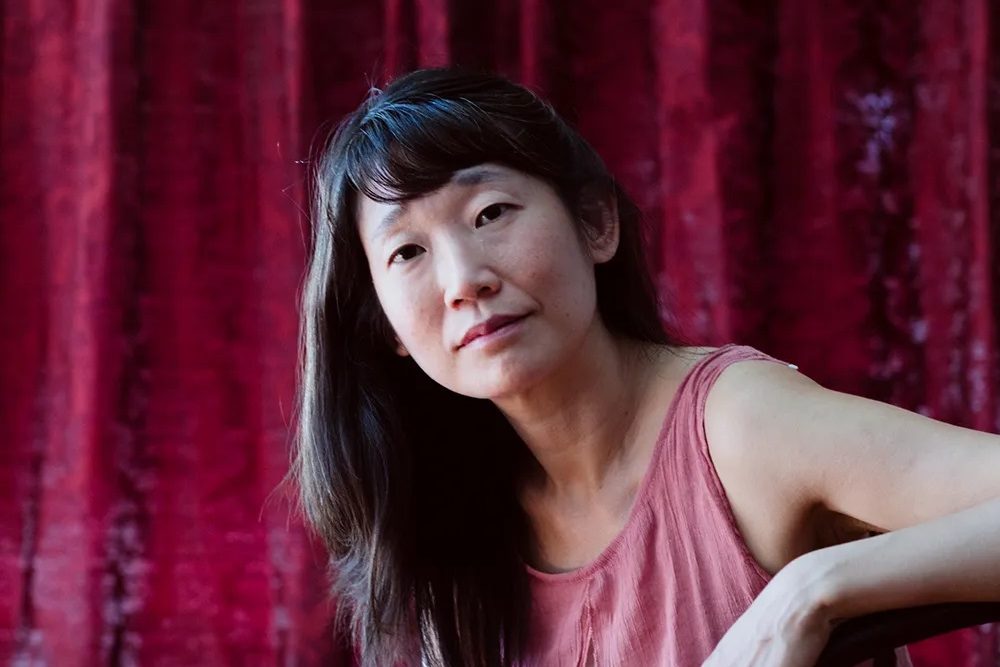In Splinters, the novelist and essayist Leslie Jamison leaves behind the issue of her addiction and recovery — the subject of her previous memoir, The Recovering (2018) — and takes us through her pregnancy, experience of childbirth, marriage, divorce and post-separation dating life. Each stage of her journey is related with the author’s trademark love of the telling detail:
On the postpartum ward my window ledge filled up with snacks from friends: graham crackers, cashews, cheddar cheese, coconut water, oranges with tiny green leaves.
Someone hands her a form to fill out. “Did I want bone broth?” We can assume she does, as bone broth appears later on.
Much of Splinters recounts her marriage to the author Charles Bock — referred to throughout as “C.” When the two first meet, Jamison “recognized him immediately. His debut novel had gotten a glowing review on the cover of the New York Times Book Review,” They fall in love quickly and marry in an impromptu midnight ceremony in Las Vegas, Bock’s home town.
When their daughter is only a few weeks old, their incompatibility hits Jamison with force. A phone call comes through from the hospital to tell the couple that their baby’s recent illness is not the life-threatening ailment they had feared, and Jamison immediately tells her mother the good news. “Why did you turn to your mother first to tell her our daughter would be fine? Why not me?” asks Bock. The answer is that Jamison needs her mother more than she needs her husband. Bock was still picking up the pieces from the death of his first wife, and they had, Jamison writes,
fallen from the false paradise of narrative, the idea that I might save him from his tragic loss, into the dirty nursery of our days, him alone in the back room while I did photo shoots in the front, leaking breast milk onto Versace.
Along with the fault lines within her marriage, Jamison explores the dilemma of the working mother. In her hospital bed after giving birth, she pulls out her computer. “Who brings a laptop with her to the hospital to give birth?” she asks. Someone who is ambitious? Who loves their work? Who gives birth in a hospital that serves bone broth? When Jamison finds herself telling her daughter’s origin story, she stops short. She prefers the version of herself that cried when her daughter was wheeled away to the version that had her reaching for her laptop. This she puts down to having been “conditioned to feel precisely this guilt.” A familiar guilt for many of us.
An exchange between a male colleague with whom she shares a university office illustrates another facet of the societal pressures on mothers. Jamison asks if he can give her an hour alone to pump her breast milk. He acquiesces and she thanks him:
But I was suspicious of my gratitude, which seemed like the product of a system that makes it difficult for mothers to work and then asks them to feel grateful every time it’s made incrementally less difficult.
Women know this guilt-gratitude spectrum all too well and Jamison could have dug deeper here into the systems preventing women from functioning fully in the world.
It is in her encounters with the wider cultural landscape — such as a popular Gary Winogrand exhibition at the Brooklyn Museum — where the intensity of caring for a newborn buts up against larger conversations about the compatibility of being an artist and having a child. Other artists come into Jamison’s orbit such as Judy Chicago, who is quoted as saying: “I also understood that would never be able to have the career I wanted if I had children.”
This is a bone to a dog to Jamison, who then interviews Donald Judd’s son, Flavin, after discovering that Donald had been a single parent. While speaking to Flavin, she is “desperate for him” to tell her that “being a parent meant you could make art that wouldn’t have been possible otherwise.” But “Flavin wouldn’t give me what I was looking for. He insisted that parenting hadn’t influenced his father’s art-making.” Her response is: “Some part of me railed against this easy refutation of influence — felt that it was somehow a luxury or an act of denial.” Yet, doesn’t Donald Judd’s desire to keep his parenting and art-making separate have something in common with pulling out a laptop after giving birth? And, further, isn’t this something we should be OK with?
Jamison’s prose pulls you in and propels you. She is a master of making you want to keep reading. Yet, the repetitive language in Splinters, which I assume is supposed to echo the repetitiveness of looking after a baby, soon became cloying. On almost every page something is described as “tiny” or “little” or “tucked” — a snack pantry, a cracker, a lobster restaurant, the sink at the university where she teaches, the breaded sea creatures at a literary festival, and on it goes. Other repetitions mystified me. Things often happen until they don’t: “My labor went fine until it didn’t.” “Nursing helped until it didn’t.” “She slept against my chest until she wasn’t sleeping any more,” and so on.
Splinters is a nervy, almost electrified, diary and confessional of the domestic. Where Jamison writes against herself, she creates a fertile space that alternates between solipsism and self-interrogation. If you are looking for a literary memoir probing the depths of childbirth, love, marriage, divorce and the systems in place that make it difficult for women — especially mothers — to thrive, this may not be the one. But, if you want to hear how these issues are navigated by Leslie Jamison, then you will be hooked. I guess you could say, I enjoyed Splinters until I didn’t.
This article was originally published in The Spectator’s UK magazine. Subscribe to the World edition here.






















Leave a Reply